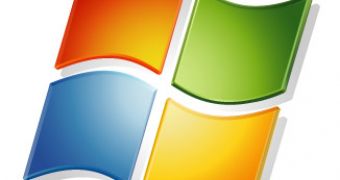Moving onward from Windows XP Service Pack 3 and Windows Vista Service Pack 1 to Windows 7, Microsoft is gearing up for the death of 32-bit versions of the Windows client. On the server-side, Window's transition to 64-bit only architectures is almost complete, with Windows Server 2008 being the last server operating system from Microsoft with support for 32-bit CPUs. On the client-side, the evolution from x86 to x64 is still a long way from the finish line, but the Redmond company is starting to witness the first signs. According to the software giant, the adoption of x64 Vista is growing at a pace superior of x86, a trend which is predicted to accelerate.
"We've been tracking the change by looking at the percentage of 64-bit PCs connecting to Windows Update, and have seen a dramatic increase in recent months. The installed base of 64-bit Windows Vista PCs, as a percentage of all Windows Vista systems, has more than tripled in the U.S. in the last three months, while worldwide adoption has more than doubled during the same period. Another view shows that 20% of new Windows Vista PCs in the U.S. connecting to Windows Update in June were 64-bit PCs, up from just 3% in March," explained Christopher Flores, Director Windows Communications.
Microsoft is giving credit not to end users for the increasing shift to 64-bit Vista operating systems, but to its channel partners, especially original equipment manufacturers, who are making the jump to x64 CPUs and machines preloaded with the analog variant of the latest Windows version. The main advantage of 64-bit Vista over its 32-bit equivalent is the ability to handle RAM in excess of 4 GB, and on top of the extra system memory, to also manage a larger number of CPU intensive applications simultaneously. In the end, the user experience will simply benefit from the added performance that 64-bit Vista SKUs will deliver.
"What started out as a gradual (some would say "glacial") movement toward 64-bit PCs, driven primarily by technology enthusiasts, seems to have turned into a swift transition, likely fueled by the falling cost of memory and consumers' desire to get the most out of their PCs," Flores indicated. Still, the transition is far from over. In fact, Microsoft has already confirmed that Windows 7, the successor of Windows Vista, would also be made available in 32-bit and 64-bit flavors. In this context, it seems, Microsoft will only deliver 64-bit exclusive versions with Windows 7 Server and maybe Windows 8, on the client-side.
For the time being, Microsoft is claiming that x64 Windows Vista is growing, and said nothing about the 64-bit version of Windows XP SP2. XP SP3 is of course only available for 32-bit machines.

 14 DAY TRIAL //
14 DAY TRIAL //